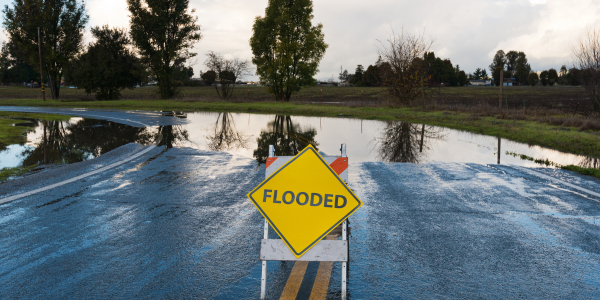
As the effects of the climate crisis become increasingly evident, New Zealanders are beginning to understand how these worldwide environmental shifts are reshaping the landscape of property ownership, investment and development here in New Zealand. Read on to learn what impact climate change has on the NZ property market, as well as mitigation measures, financial considerations, and government initiatives addressing this pressing issue.
The Climate Crisis and New Zealand
Although known for its stunning natural beauty, New Zealand has not escaped the impact of climate change. From more frequent and severe weather events such as flooding, to rising sea levels that threaten the lives and livelihoods of coastal communities, New Zealanders face a number of climate-related risks that only serve to underline the urgency of action.
For the New Zealand property market, the impact of climate change could lead to:
- Shifts in property demand and value: As climate-related risks intensify, property values may be significantly affected. Areas vulnerable to flooding or other weather-related disasters could experience a decline in demand, while properties in regions perceived as lower risk may become more desirable.
- Legal and regulatory considerations: Proposed regulations and policies that look to address the climate crisis could influence property development, renovation and compliance requirements.
- Higher costs of insurance or changes to level of cover: Insurance plays an important role in managing the increased risk of climate change and, while insurers continue to cover properties in higher risk areas for the foreseeable future, we may see a rise in costs of premiums and excesses, and changes to the level of cover provided.
Adaptation and Mitigation Measures
In the face of a climate crisis, property owners and developers must prioritise sustainability, by applying innovative building design and construction techniques that enhance a property’s ability to withstand climate-related risks. Additionally, the importance of considering climate risks during property development and renovation projects cannot be emphasised enough.
As awareness of the climate crisis grows, there’s an increasing demand for eco-friendly and energy-efficient homes, with many homeowners and property investors now choosing to build or buy sustainable property.
Passive homes – homes that minimise energy use and maximise comfort and affordability through the use of superior insulation and heat recovery ventilation systems – have been built in New Zealand since 2012. However, in the past two years, there’s been a surge in awareness of the immediate and long-term benefits of certified passive homes for both the families living in them and the environment. It’s likely this trend will continue and only increase over time.
Financial Considerations for Property Buyers and Investors
Climate change risks pose significant financial challenges when it comes to property insurance. While it’s not yet evident how these risks could impact insurance coverage and the potential for premium increases, we are already seeing insurers and banks factoring climate effects into insurance and lending applications.
For property buyers and investors, managing climate risks with adequate insurance cover is an important financial consideration when making property-related decisions. Building climate-resilient properties in the right locations, following a comprehensive assessment of the potential for risk, is critical.
Government Initiatives and Incentives
New Zealand is committed to reducing greenhouse gas emissions by 2050, and the property sector has been identified as one of the key areas of change. To achieve this target, the New Zealand government has introduced the following measures:
- New Zealand’s first Emissions Reductions Plan (released in May 2022).
- New Zealand’s first national adaptation plan: Urutau, ka taurikura: Kia tū pakari a Aotearoa i ngā huringa āhuarangi – Adapt and thrive: Building a climate-resilient New Zealand (finalised in August 2022).
- The Building for Climate Change programme, run by the Ministry for Business, Innovation and Employment (introduced in 2020, with ongoing initiatives).
Property buyers and investors in New Zealand must consider the irreversible effects of climate change, as the impact on the New Zealand property market can no longer be ignored. By understanding these factors, we can navigate the changing landscape of property ownership and investment while contributing to a more sustainable future.
For financial advice tailored to your unique financial situation, about financing a new build or obtaining a mortgage to buy a new sustainable home, contact a Mortgage Express branded mortgage adviser.



